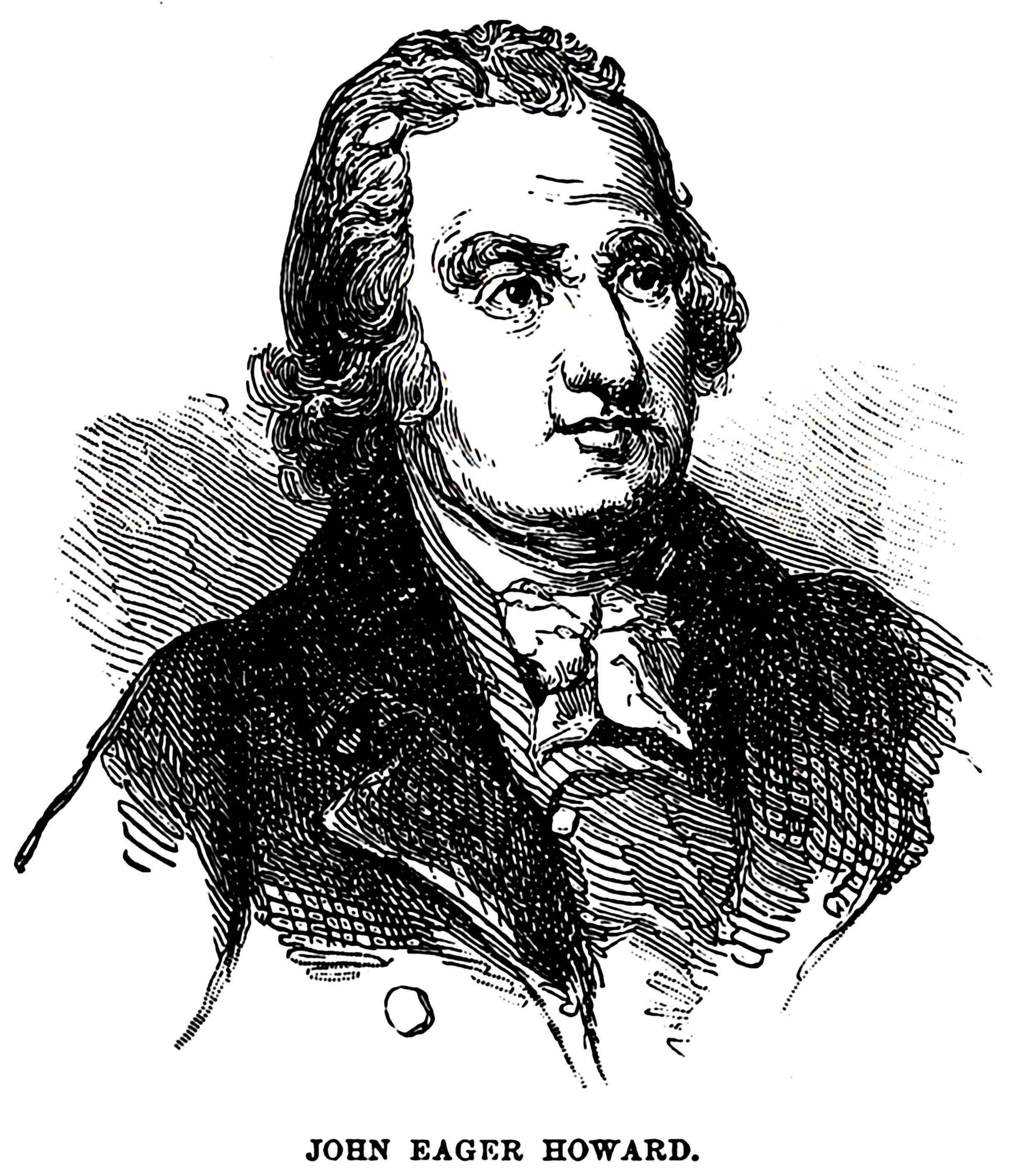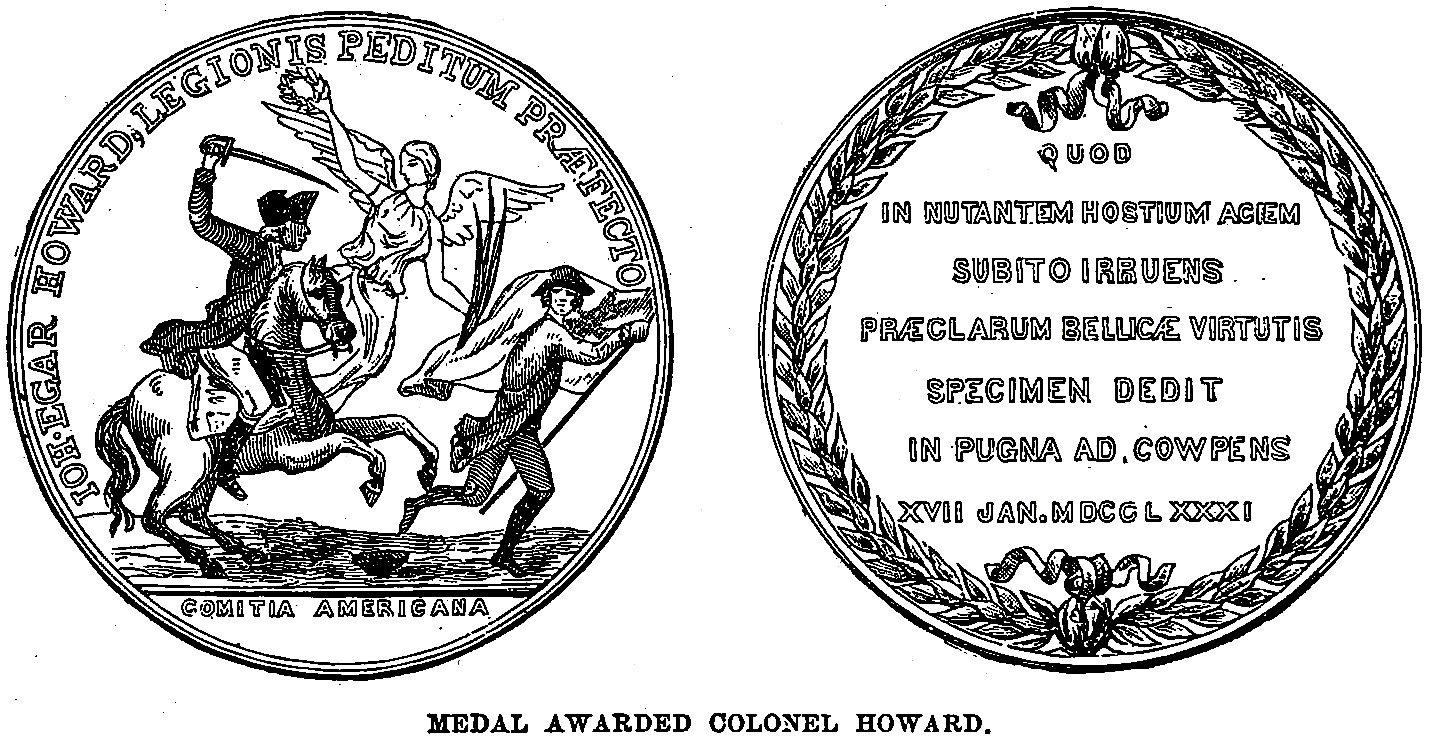Harper's Encyclopædia, 1902
John Eager Howard

Howard, JOHN EAGER, military officer; born in Baltimore county, Md., June 4, 1752; was a captain in Hull's regiment at the battle of White Plains; became a major in the Continental army in 1777; and was distinguished in the battle of Germantown. He was in the battle of MONMOUTH (q. v.), and was made a lieutenant-colonel. In 1780 he was detailed, with the Maryland and Delaware troops, to serve in the Southern Department. In Gates's defeat, near Camden, he participated, and he led the Continental infantry in the battle of the Cowpens, at one time holding in his hands the swords of seven surrendered British officers. For his conduct there Congress voted him a silver medal. It was the first occasion during the Revolutionary War in which the bayonet was effectively used. He was distinguished in the battles of Guildford, Hobkirk's Hill, and Eutaw Springs, and was severeIy wounded in the latter engagement. After the war he married a daughter of Chief-Justice Chew, of Pennsylvania. He was a member of Congress (178788) , and governor of Maryland from 1789 to 1792. Colonel Howard was a member of the Maryland Senate in 1795, and United States Senator from 1796 to 1803. He was named by Washington for one of his brigadier-generals in 1798. When Baltimore was threatened in 1814, Howard placed himself at the head of aged men armed for its defence. He died in Baltimore county, Oct. 12, 1827.

Harper's Encyclopædia of United States History from 458 A.D. to 1902, Benson John Lossing and Woodrow Wilson, Eds., 1902, vol. 4, Page 431.